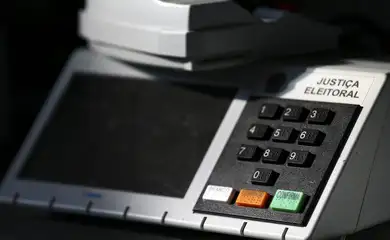Brazil 2024 elections: young voters rise by 78% compared to 2020

The number of 16- and 17-year-olds registered to vote in this October's municipal elections has surged by 78 percent compared to the 2020 municipal elections. According to data from the Superior Electoral Court, there are now 1,836,081 eligible voters in this age group.

In the 2020 municipal elections, 1,030,563 teenagers, who are not required to vote, registered. According to the Brazilian Constitution, voting is compulsory only for those aged 18 to 70. The increase in registered voters in this age group far exceeded the overall electorate's growth, which rose by 5.4 percent between the two municipal elections.
As a result, this group now represents 1.17 percent of the entire Brazilian electorate, which totals over 155.9 million voters. The largest age group within the electorate is 45 to 59 years old, comprising 38,883,736 voters.
In the 2022 general elections, teenage voter registration surged, reaching 2.1 million—an increase of 51.13 percent compared to 2018. The Electoral Court, however, cautions against comparing these figures with municipal elections, as certain areas, like Brasília, Fernando de Noronha, and polling stations abroad, do not participate in municipal elections.
At the other end of the spectrum, 15.2 million voters aged 70 and over are eligible to vote this year, making up 9.76 percent of the electorate. This marks a 23 percent increase from 2020, when the figure stood at 12.3 million. Along with young voters, a total of 20.5 million Brazilians have the option to vote in the 2024 elections.
Profile
Women make up the majority of voters across all age groups, mirroring the broader population's age distribution. Geographically, women outnumber men in 3,432 of the 5,569 municipalities participating in this year's elections, accounting for six out of ten municipalities.
In terms of education, the majority of the electorate has completed high school (42.1 million) or primary school (35 million). Additionally, 16.7 million have attained higher education, while 5.5 million have reported being illiterate.
In terms of geographical distribution, most voters reside in the Southeast (66.9 million), followed by the Northeast (43.3 million), the South (22.6 million), the North (12.9 million), and the Central-West (9.7 million).
In São Paulo, the most populous municipality in the country, 9.3 million people are eligible to vote. In contrast, Borá, also located in São Paulo state, has the fewest voters, with just 1,094 individuals.
This year, Brazilian voters are scheduled to head to the polls on October 6 to elect mayors, vice-mayors, and city councilors. A potential second round is set for October 27, but it will only occur in cities with populations of 200,000 or more where no candidate has secured an absolute majority in the first round.





